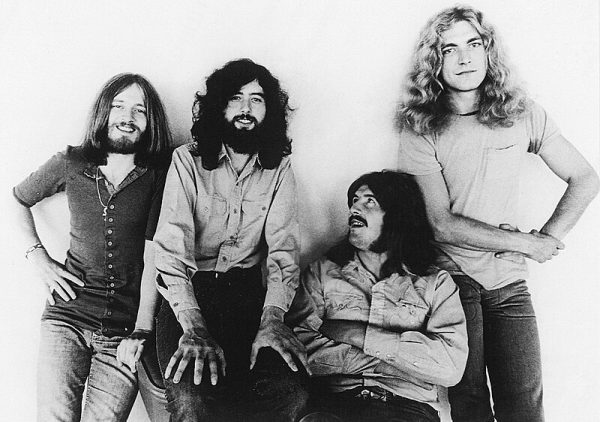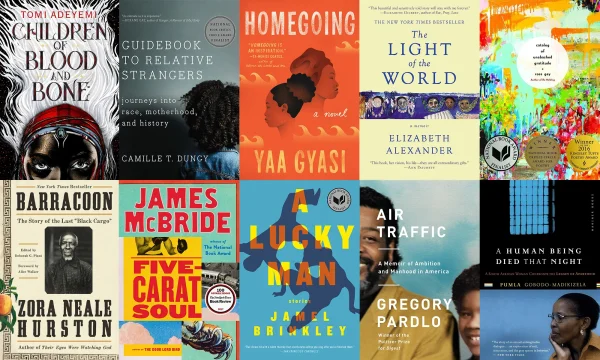The Power of Nostalgia
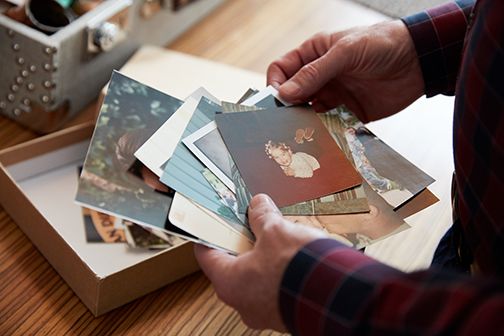
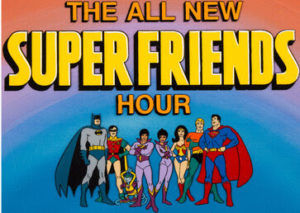
Recently I’ve been rewatching Super Friends, a DC Comics cartoon from back in the 70s and 80s. I remember watching reruns of it, along with others like Scooby-Doo and He-Man, when I was really young. These goofy, low budget cartoons were one of the main ways I was able to bond with my dad as a kid, and they meant a lot to me. As I’ve been watching, I’ve found myself experiencing a powerful emotion that I couldn’t quite put my finger on.
Nostalgia. A word defined by the Merriam-Webster dictionary as, “a wistful or excessively sentimental yearning for a return to or of some past period or irrecoverable condition.” Cambridge dictionary describes it as, “a feeling of pleasure and also slight sadness when you think about things that happened in the past.”

It seems like nowadays nostalgia is all around us, from viral memes about growing up in certain decades to advertisements that rely on how much we miss something to sell a product. This is something we’ve seen a lot recently with a rise in so-called “nostalgia marketing.” Companies connect their product with positive feelings about the past, even going so far as to reboot popular kids’ shows from the 90s and early 2000s, but market them to a teenage or young adult audience. Think Paramount Plus’s iCarly reboot and the CW’s Nancy Drew. Both are beloved pieces of kids’ media that have been reworked into TV shows for different audiences.
It seems like everyone wants to go back in time, so much so that it’s become profitable. I want to dive a little deeper into this phenomenon, as it’s so common in our everyday lives, yet few can really pinpoint why we feel this way.
According to the National Library of Medicine, the term “nostalgia” was coined by Johannes Hofer in 1688, though it has roots in German that go much further back. Around this time, it was actually considered a disorder. However, it’s been recently discovered to be somewhat beneficial. People can use it to lessen feelings of sadness and connect with others through shared experiences.
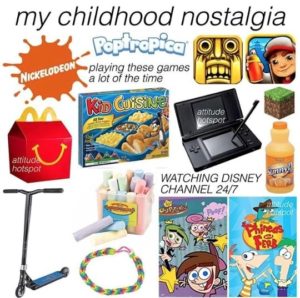
One thing that I find interesting about nostalgia is that it isn’t exclusive to one or a few generations. For every 32 year old “90s kid” tweeting about how they miss Blockbuster, there’s a teenager talking about early Disney Channel shows from the 2010s, and a senior citizen reminiscing over their ideas of the “good old days”. To me, this suggests that nostalgia isn’t necessarily longing for a certain time period, but a state of being. Everyone wants to go back to when they were a kid. Regardless of the outside circumstances of the world, everything seems simpler when we are younger.
Dr Erica Hepper at the University of Surrey elaborates on this in an interview with the New York Times, stating, “Nostalgia helps us deal with transitions. The young adults are just moving away from home and or starting their first jobs, so they fall back on memories of family Christmases, pets, and friends in school.” For many of us, life is a constant series of transitions, especially as teenagers. Changing ideas, classes, friend groups, and appearances. It’s understandable that many of us would turn to nostalgia.
Let’s go back to my original example of a cartoon I watched as a young boy. One may not think that a kid’s show about superheroes would have such a profound effect on someone, but in my experience, it’s helped me to reflect more on my childhood, and in a way, gain closure. Being able to reflect on my life growing up has helped me realize how certain things affected me and shaped me into the person I am today. Of course, this may not work for everyone, but I’d encourage anyone reading this to go back and indulge in something from their childhood. A book you loved, an old movie, or a band that you listened to in 2012. A little nostalgia can go a long way.




